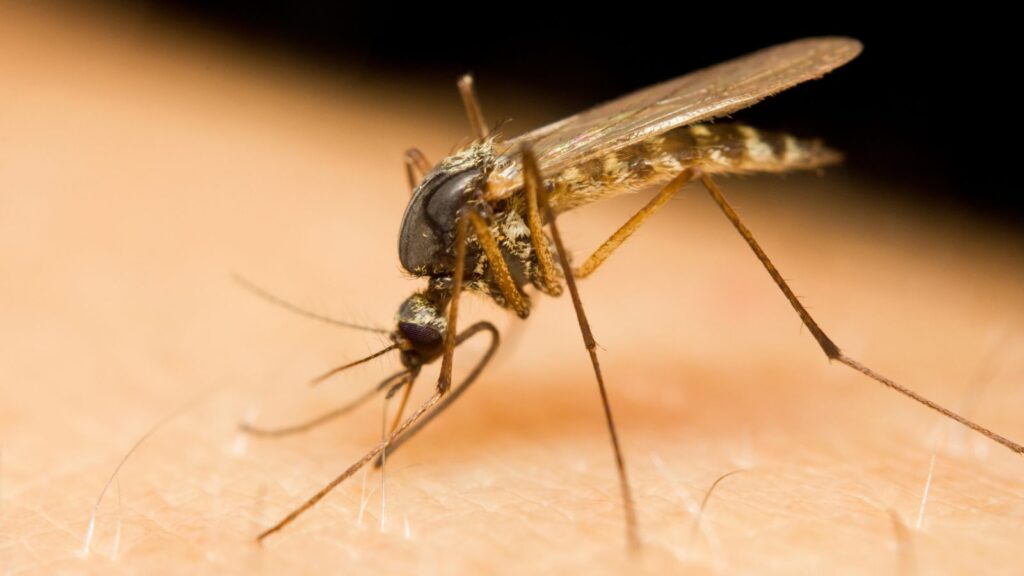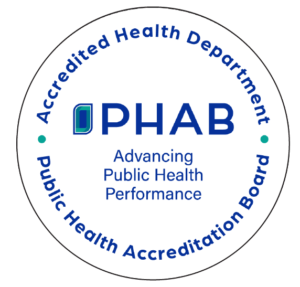With recent heavy rains, it is a busy time for the Lake County General Health District (LCGHD) mosquito control staff. By far the most visible component of their program is the nighttime spraying. LCGHD is using new quieter electric sprayers. They do not emit exhaust gasses since they are battery powered. This decreases the carbon footprint of the program. As of August 1st, all the spray routes in the county have been completed once and LCGHD is starting a second round. This year they have used just under 100 gallons of adulticiding products, over 600 spray miles, and 22,000 acres have been treated.
Their surveillance program has collected over 3,500 mosquitoes for West Nile Virus testing and mosquito identification. Because West Nile Virus is endemic in our area, LCGHD continues to monitor the mosquito population for it. As of August 1st, West Nile Virus has been identified in 8 mosquito pools in Lake County. A pool is a group of not more than 50 mosquitoes.
The daytime Larviciding program, has responded to citizen complaints about standing water and nuisance mosquitoes. Once an area has been inspected by staff, the area can be treated if breeding is occurring. Staff revisits treated areas to ensure the larva have been eliminated. If not, then a second treatment could be warranted. Even with their control programs, it is up to individual property owners to assist with efforts to control mosquitoes.
“The best advice is to get rid of standing water around your house, if you can, and use personal protection,” noted Bert Mechenbier, Supervisor of Mosquito Control at Lake County General Health District.
“With all of the extra precipitation last month, LCGHD is requesting your help controlling mosquitoes” Mechenbier added.
Mechenbier provided the following tips for homeowners to keep mosquitoes from breeding in backyards:
- Dispose of tin cans, old tires, buckets, unused plastic swimming pools, plastic covers or other containers that collect and hold water. Mosquitoes can lay eggs in containers as small as bottle lids.
- Keep roof gutters unclogged. Clean gutters in the spring and fall.
- Clean and chlorinate swimming pools, outdoor saunas, and hot tubs. Keep them covered when empty.
- Empty and change the water in bird baths, fountains, wading pools, rain barrels, and potted trays at least once a week, if not more often.
- Fill or drain puddles, ditches, and swampy areas and either remove, drain, or fill tree holes and stumps with mortar.
- Eliminate seepage from cisterns, cesspools, and septic tanks.
- Eliminate standing water around animal watering troughs.
- Irrigate lawns and gardens carefully to prevent water from standing for several days.
- Do not let water accumulate in children’s plastic toys.
The Health District would also like to advise the following to protect yourself from biting mosquitoes:
- Avoid being outside at dawn/dusk. If you cannot avoid those times, use a repellent.
- Use an insect repellent containing active ingredients which have been registered with the U.S. Environmental Protection Agency (EPA) for use as repellents applied to skin and clothing. Of the products registered with the EPA, those containing DEET, picaridin, IR3535, and some oil of lemon eucalyptus and para-menthane-diol products provide longer-lasting protection than other products.
- Use repellents according to label instructions.
- Most insect repellents can be used on children. Products containing oil of lemon eucalyptus should not to be used on children under the age of three years. Do not allow children to handle or spray insect repellents. When using on children, apply to your own hands first and then put it on the child. Avoid applying repellent to children’s hands because children frequently put their hands in their eyes and mouths. EPA does not recommend any additional precautions for using registered repellents on children.
- Repellents containing a higher percentage of the active ingredient typically provide longer-lasting protection. Regardless of what product you use, if you start to get mosquito bites, reapply the repellent according to the label instructions.
- Wash treated skin and clothing after returning indoors.
- Wash treated skin and clothing after returning indoors.
- Wear light-colored clothing.
- Wear long sleeved shirts, long pants, and socks if you go outside when mosquitoes are most active (from dusk until dawn).
- Avoid wearing perfume, cologne and aromatic scents.
- Make sure window and door screens are “bug tight”. Repair or replace torn screens.
- Replace outdoor lights with yellow “bug lights”.
For general information on mosquitoes, mosquito control and spray routes, please visit the Health District’s website at https://www.lcghd.org/mosquito-control/


